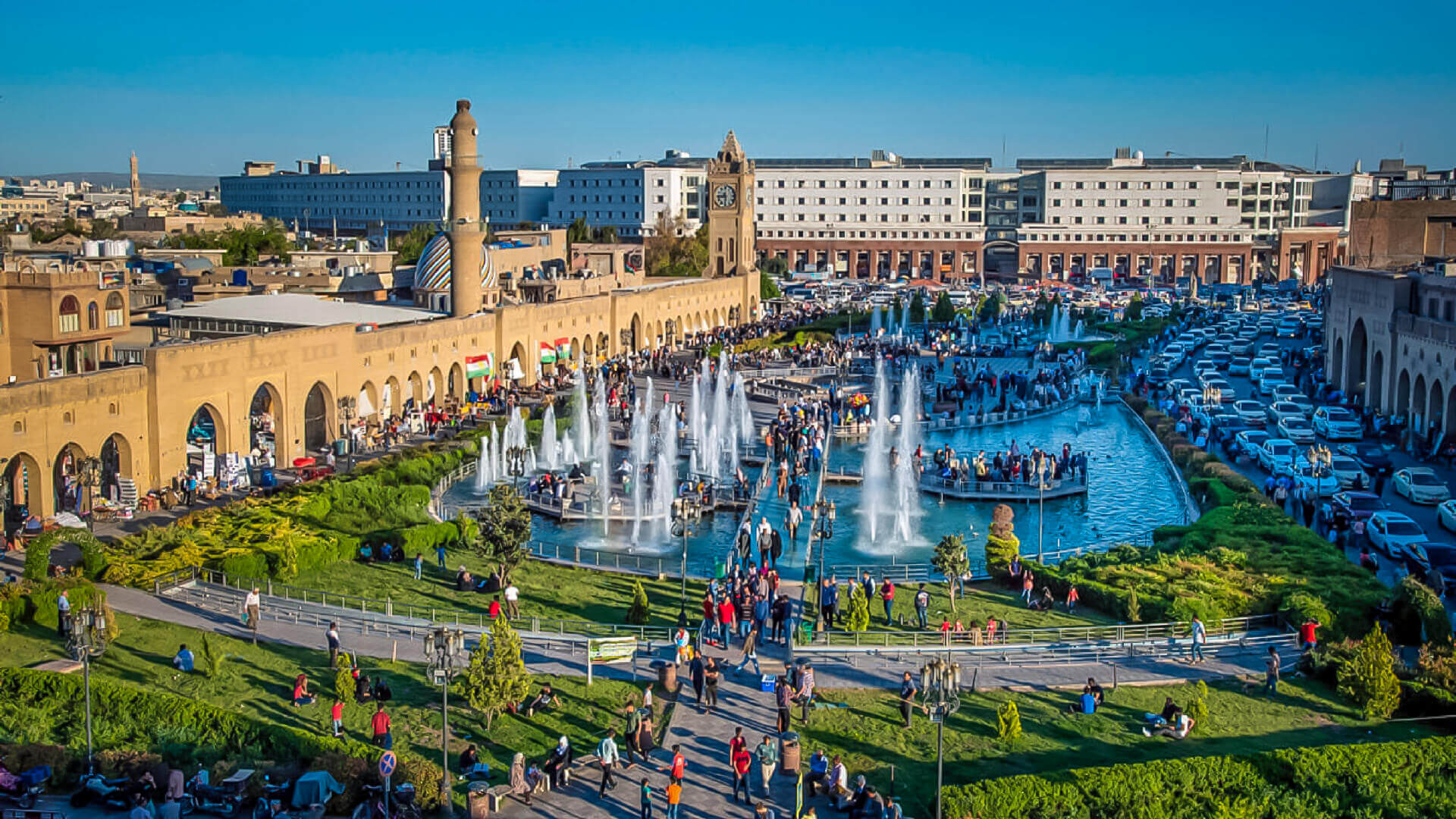Iraq, formally known as the Republic of Iraq, is a nation in Western Asia. It is bordered to the north by Turkey, to the east by Iran, to the southeast by Kuwait, to the south by Saudi Arabia, to the southwest by Jordan, and to the west by Syria. Baghdad is the capital and biggest city. Arabs and Kurds are the two largest ethnic groups, although Assyrians, Turkmen, Shabakis, Yazidis, Armenians, Mandeans, Circassians, and Kawliya are also present. Around 95% of the country’s 36 million people are Shia or Sunni Muslims, with minorities of Christianity, Yarsan, Yezidism, and Mandeanism.
Iraq’s 58-kilometer-long (36-mile-long) northern Persian Gulf coastline includes the Mesopotamian Alluvial Plain, the northern end of the Zagros mountain range, and the eastern portion of the Syrian Desert. The Tigris and Euphrates rivers flow south through Iraq, meeting at the Shatt al-Arab in the Persian Gulf. These rivers provide a large quantity of fertile land to Iraq.
Historically known as Mesopotamia, the area between the Tigris and Euphrates rivers is often considered to be the birthplace of civilization. It was here that humanity first learned to read, write, establish laws, and live in towns governed by organized governments – most famously Uruk, from whence the name “Iraq” derives. Since the sixth millennium BC, the region has been inhabited by various civilisations. Iraq was the administrative center of the Akkadian, Sumerian, Assyrian, and Babylonian empires. It was also a part of the Median, Achaemenid, Hellenistic, Parthian, Sassanid, and Roman empires, as well as the Rashidun, Umayyad, Abbasid, Ayyubid, Mongol, Safavid, and Afsharid empires.
Iraq’s current boundaries were largely defined by the League of Nations in 1920, after the Ottoman Empire’s partition through the Treaty of Sèvres. Iraq was included into the British Mandate of Mesopotamia. In 1921, a monarchy was created, and the Kingdom of Iraq declared independence from the United Kingdom in 1932. The monarchy was deposed in 1958, and the Iraqi Republic was established. From 1968 until 2003, Iraq was ruled by the Arab Socialist Ba’ath Party. Saddam Hussein’s Ba’ath Party was deposed after an invasion by the US and its allies in 2003, and multi-party parliamentary elections were conducted in 2005. Although the United States withdrew from Iraq in 2011, the Iraqi insurgency persisted and escalated as jihadists from Syria’s civil war entered the nation.


